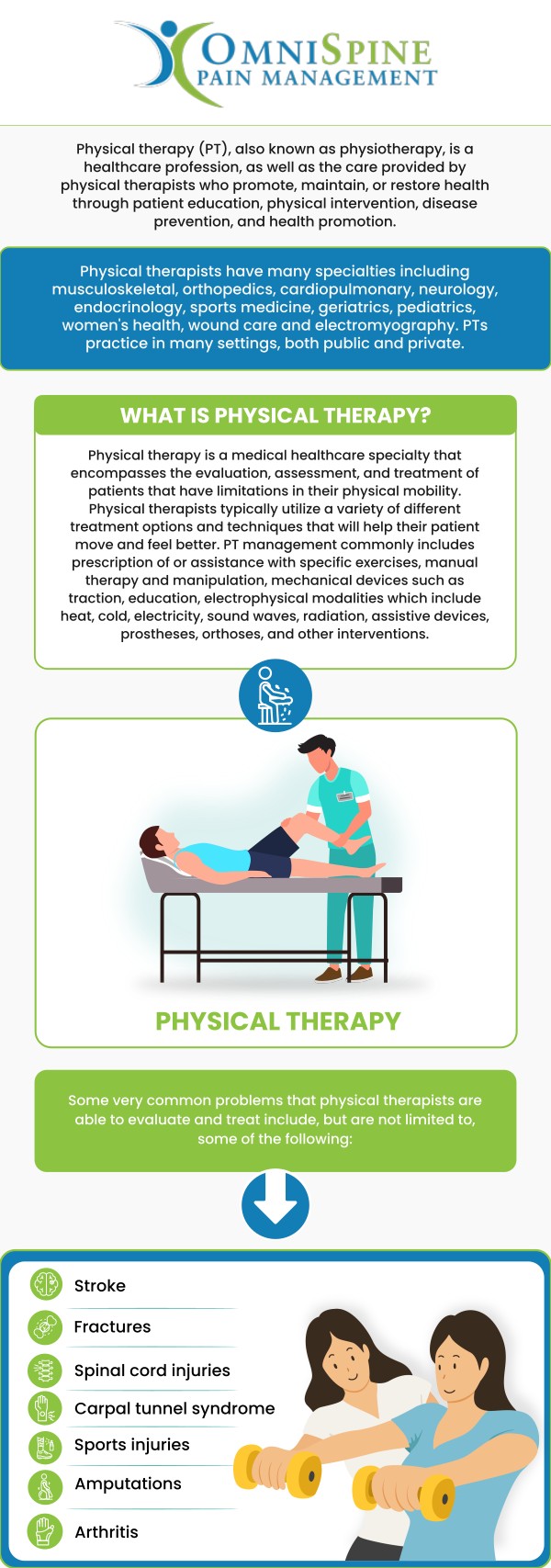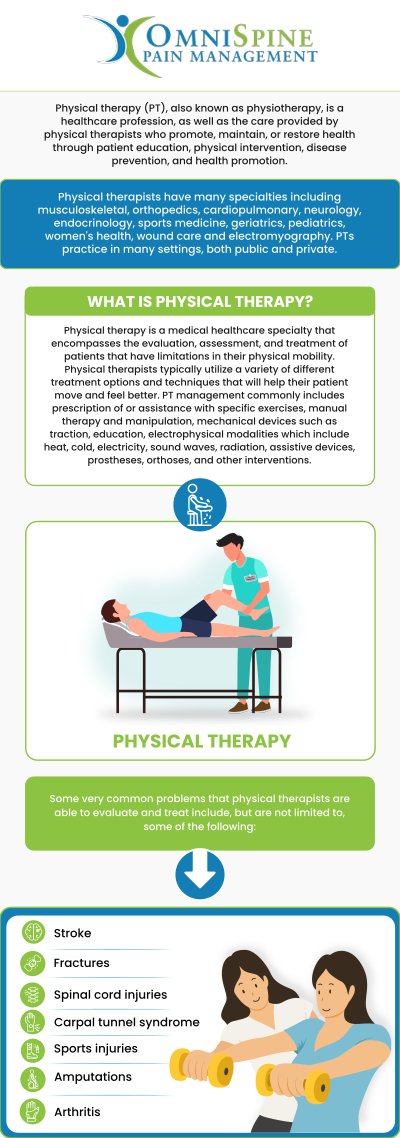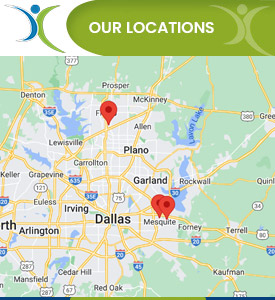Physical Therapy for Herniated Discs Q&A
Are you suffering from pain from a herniated disc? Do not continue to suffer alone. Visit Dr. Andrew Morchower at OmniSpine Pain Management today to get a customized plan for the pain management of your herniated disc. For more information, contact us today or book an appointment online. Our clinics are located in Frisco, TX, Sunnyvale, TX, and Mesquite, TX.




Table of Contents:
What is a herniated disk?
What are the signs and symptoms of a herniated disc?
How can physical therapy help?
Can a herniated disc be prevented?
The vertebrae that form the spine in the back are cushioned by discs. These discs are round, and small with a tough, outer layer that surrounds the nucleus. Located in the back between each vertebra in the spinal column, the discs act as shock absorbers for the spinal bones.
Something as simple as a strain or an injury may cause a herniated disc. A herniated disc also known as a bulged disc, slipped disc or ruptured disc is a fragment of the disc nucleus that is pushed out of the outer layer (annulus), into the spinal canal through a tear or rupture in the outer layer. Discs that become herniated are usually in the early stages of degeneration. Due to the displacement of the disc, the disc presses on the spinal nerves, often producing pain, and can become severe.
However, the discs degenerate naturally as one ages, and the ligaments that hold the discs in place start to become weak. As this degeneration continues, a relatively minor strain or twisting movement can cause a disc to rupture.
Some individuals may be more prone to disc problems and as such, may suffer from herniated discs in several places along the spine.
Symptoms differ for each individual who suffers from a herniated disc. Depending on the position of the herniated disc and its size it, the herniated disc may not be pressing right on a nerve, if the patient experiences low backache or no pain at all. However, if the herniated disc is pressing on a nerve, there can be pain (from mild to severe), numbness, or weakness in the area of the body to which the nerve travels. A herniated disc is followed by an episode of low back pain or a long history of intermittent episodes of lower back pain.
Usually from the results of a herniated disc in the lower back, sciatica frequently results from it. Pressure on one or more nerves that contribute to the sciatic nerve can cause pain, burning, tingling, and numbness that flows from the buttock into the leg and sometimes even to the foot.
As well as sciatica, cervical radiculopathy can also result from a disc herniation. Symptoms of this include compression in the neck, which results in dull or sharp pain in the neck or between the shoulder blades, pain that radiates down the arm to the hand or fingers, or numbness or tingling in the shoulder or arm. This pain can increase with certain movements or positions of the neck.
The great news is a herniated disc usually does not require surgery. Many doctors will recommend physical therapy, as it’s a helpful aid to get you back to feeling your best. Your physical therapist will perform an in-depth evaluation, combined with the doctor’s diagnosis, and will dictate treatment specifically designed for patients with herniated discs. Physical therapy may include therapy like pelvic traction, gentle massage, ice and heat therapy, ultrasound, electrical muscle stimulation, and stretching exercises. Your physical therapist will help your spinal muscles to become stronger, and the pressure being put onto the herniated disc should lessen, causing the pain to decrease. Seeing a physical therapist relieves the pain associated with a herniated disc and helps to train your body on the prevention of back and neck pain for the future.
It is not always possible to prevent a herniated disc, however, there are some great steps you can take to help reduce the risk of a herniated disc:
• Using proper lifting techniques. Bending at your knees while keeping your back straight and using your leg muscles to help support the load of what you are lifting
• Maintain a healthy weight
• Practice good posture when doing activities like walking, sitting, standing or sleeping
• Stretch daily and often when sitting for long periods, especially
• Refrain from wearing high-heeled shoes
• Exercise regularly to keep the muscles strong
• Quit smoking
• Eat a healthy and well-balance meal at every meal
If you have further questions about herniated disc physical therapy or would like to schedule an appointment with one of our herniated disc physical therapists at OmniSpine Pain Management, we would be pleased to hear from you! Please feel welcome to contact us or schedule an appointment through our website. You can visit us at our clinics located in Frisco TX, Sunnyvale, TX, and Mesquite, TX. We serve patients from Dallas TX, Frisco TX, Mesquite TX, Sunnyvale TX, Plano TX, Garland TX, Forney TX, Cedar Hill TX, Denton TX, Balch Springs TX, and surrounding areas.
Check Out Our 5 Star Reviews






